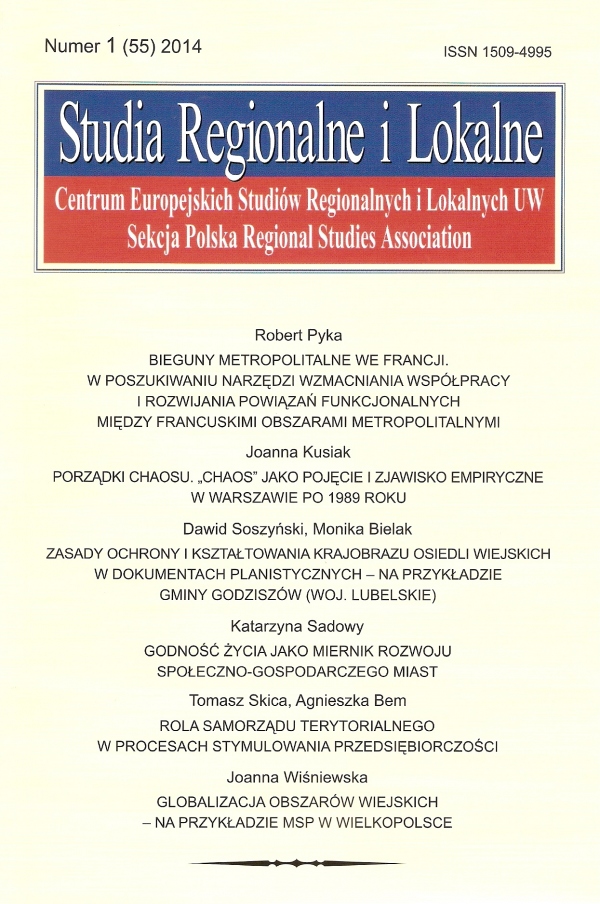Published in
1(55)/2014

- Robert PykaMetropolitan Poles in France. In search of tools to enhance cooperation and develop functional relationships between French metropolitan regions[more]
- Joanna KusiakThe orders of chaos. “Chaos” in post-socialist Warsaw as a concept and as an empirical phenomenon[more]
- Dawid Soszyński, Monika BielakThe principles of protection and shaping of rural settlement landscape detailed in planning documentation, with the Godziszów commune (Lublin voivodeship) as a case in point[more]
- Katarzyna SadowyLife dignity as a measure of socio-economic development of cities[more]
- Tomasz Skica, Agnieszka BemThe role of local governments in entrepreneurship stimulation[more]
- Joanna WiśniewskaThe globalization of rural areas on the example of SMEs in Wielkopolska[more]
- Grzegorz GorzelakEnrico Moretti, 2013, The New Geography of Jobs (recenzja)[more]
- Roman SzulAntoni Kukliński, 2013, In Search of New Paradigms (Selected papers 2001–2011) (recenzja)[more]
- Marek KozakAndrzej Raczyk, Sylwia Dołzbłasz, Małgorzata Leśniak-Johann, 2012, Relacje współpracy i konkurencji na pograniczu polsko-niemieckim (recenzja)[more]
- Anna TucholskaDariusz Czaja (wybór, redakcja i wstęp), 2013, Inne przestrzenie, inne miejsca. Mapy i terytoria (recenzja)[more]
- Mariusz ChudakJanusz Słodczyk, 2012, Historia planowania i budowy miast (recenzja)[more]


